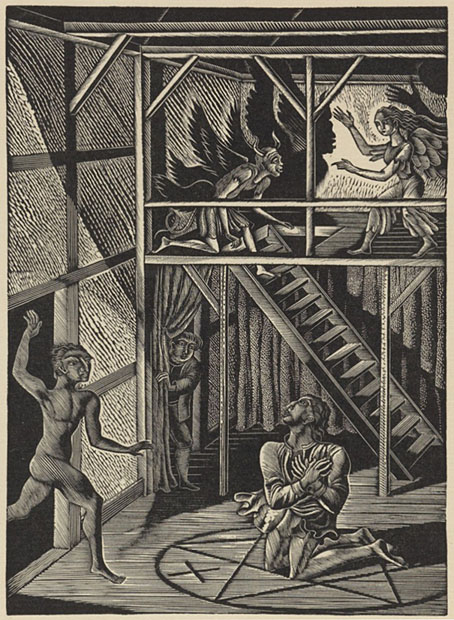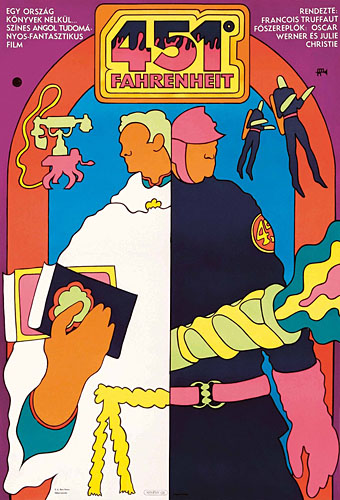Dr Faustus Conjuring Mephistopheles (1928) by Eric Ravilious.
• Materialising in July from a cloud of sulphurous smoke: The Devil Rides In – Spellbinding Satanic Magick & The Rockult 1967–1974. Cherry Red Records, home of the well-sourced, well-researched multi-disc compilation, might have been channelling my inner desires with this one, a Sabbath-esque soundtrack to the Occult Revival. I ordered it faster than you can say “Hail Satan!”
• A Series of Headaches: Shakespeare’s First Folio meets the London Review of Books. “In this film, letterpress printer Nick Hand pulls apart the whole process, from making ink from crushed oak galls to heaving the levers of a replica Jacobean press, and shows how we produced our own (almost) authentic version of the LRB circa 1623.”
• Alan Moore will be subject to greater attention than usual in October. In addition to the forthcoming Moon and Serpent Bumper Book of Magic, the month will also see the publication of The Great When, the first novel in his Long London series. Bloomsbury now has cover art to go with their description of the novel.
• Mad Dogs & Englishmen: Faust On Virgin Records: An extract from Neu Klang: The Definitive Story of Krautrock by Cristoph Dallach, “the first comprehensive oral history of the diverse and radical movement in German music during the late 60s and 1970s.”
• Alien life is no joke: Adam Frank on combating “the giggle factor” in the search for extraterrestrial life.
• At Colossal: Lauren Fensterstock’s Cosmic Mosaics Map Out the Unknown in Crystal and Gems.
• New music: Ritual (evocation) by Jon Hopkins; Time Is Glass by Six Organs Of Admittance.
• At Unquiet Things: The Gentle, Jubilant Visual Poetry of Tino Rodriguez.
• At Retro-Forteana: Colin Wilson, Philosopher of the Paranormal.
• DJ Food on Jeff Keen’s Amazing Rayday Comic collages.
At Dennis Cooper’s: Alan Clarke Day.
• Krautrock (1973) by Faust | Krautrock (1973) by Conrad Schnitzler | The Kraut (2007) by Stars Of The Lid



